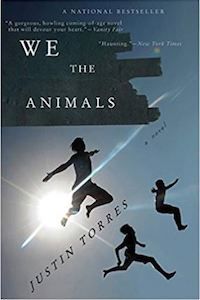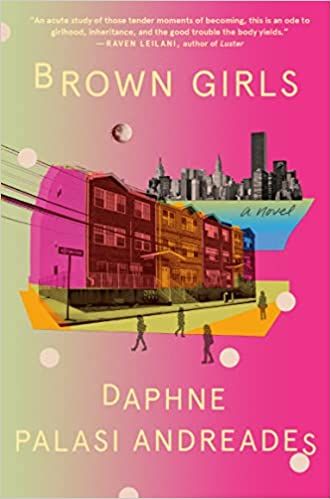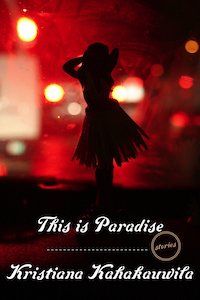We Turn The Page: First Person Plural Point Of View Books
When someone mentions first person point of view, brains may travel to the more commonplace singular perspective. For fun (yes, I look up things I already know for fun), I reference the term in an old craft book from an undergraduate writing workshop. I gasp at example after example of the “I” and only the “I.” Because of its extraordinariness and nontraditional spirit, the “we” perspective, or first person plural, stands out in my literary heart and mind. So much so that, before I even typed the first word of this essay, I knew which books I would turn to.
From “We Real Cool” by Gwendolyn Brooks to the The Virgin Suicides by Jeffrey Eugenides, popular pieces utilizing a “we,” the rare first person plural, have garnered readers’ attention. Here, I revisit stories entirely or almost entirely in the collective voice. A combination of long-time and fast favorites, these made my mouth gape in wonder, made my cells sing. Thank you, We the Animals, “This Is Paradise,” and Brown Girls, for sweeping me up in your we.
First Impressions
To say I have a thing for first sentences would be an understatement. Alongside the title and cover, a book’s opening line often contributes to its first impression. We the Animals begins: “We wanted more.” Straightforward in its hunger, the compact sentence of three words inspires curiosity. Brown Girls starts with a longer sentence, “We live in the dregs of Queens, New York, where airplanes fly so low that we are certain they will crush us.” Justin Torres’s debut and Daphne Palasi Andreades’s opening vignette, also titled “Brown Girls,” share a first word, We, presenting their collectiveness immediately.
Regarding first sentences, “This Is Paradise” by Kristiana Kahakauwila somewhat differs. The story unfolds with caution, quite literally, “Midmorning the lifeguards fan across the beach and push signposts into the sand.” After establishing the presence and threat of an undertow, the second paragraph’s first sentence — “We ignore it. — surprises. This delayed reveal of the collective voice adds mystery to the mystery. Resembling Torres’s introduction of the “we,” Kristiana Kahakauwila’s contains three concise words, and this “we” seems “hungry,” too. Hungry for waves.
Variations Of “We”
Comprised of lyrical vignettes, the “we” in Brown Girls shifts: closing in, zooming out, amassing, expanding. Names and details arrive in lists, and the lists spread across pages. Some characters appear once; some — like Gabby, Carmen, and Michaela — reappear. This lends to the collective voice feeling uncountable. Whether Brown girls stay or leave the dregs of Queens, their shared place draws them together as well as their shared, and contrasting, experiences of being girls and, later, women of color.
In the other two pieces, the narrators seem more concrete. “This Is Paradise” features an alternating “we,” specifically three groups of women: surfers; hotel staff in the “Housekeeping” department of a Waikīkī hotel; and “career women,” who left for the continental U.S. and then returned. The groups puzzle together a tourist’s final moments. The “we” in We the Animals entails three brothers born to a Puerto Rican father and white mother, both from Brooklyn.
Daydreaming Up The “We” And Its Real-Life Effects
Across all three works, the “we” represents an intimacy, a bond, a sense of belonging to something larger than the “I.” In “Novels Masquerading as Stories” by Tyler McMahon via Fiction Writers Review, Kahakauwila suggests, “Truth comes from layering as many points of view together as possible and letting a reader experience them all.” Within This Is Paradise’s opening and titular story, which spans 38 breathtaking pages, the collective voice reveals multiple truths. Through an eerie distance, they observe what happens, and what might have happened, to Susan. And, through the eyes of various locals, they illuminate a truer portrayal of “paradise.”
In a Minorities in Publishing interview with Jenn Baker, Andreades explains, from drafting the first vignette, Brown Girls began with the “we.” The “chorus of women’s voices” highlights “primarily first- and second-generation immigrant daughters across different diasporas.” Inspired by the “vibrant and varied…diversity” of Queens, Andreades, who tends to experiment with points of view during revision, calls first person plural “the only voice for the story.” My mind keeps returning to community and representation, and I continue flipping to two sticky-flagged and bookmarked sentences. In “Western Epistemology,” Brown girls read the assigned texts for their high school English classes and think, “We don’t look like anybody in these books. And nobody looks like us.”
For Between the Covers, Torres, in conversation with David Naimon, states the “we” — which includes Joel, Manny, and one unnamed brother — helps illustrate the protagonist’s “queer sensibility” through his feelings of belonging and estrangement toward his siblings and family. While rereading We the Animals, the narration grips me. With the lyrical precision of poetry, the book’s language and structure, composed of “fragments,” creates a dependable consistency. So, it jars me when it strays, especially in the penultimate chapter. Throughout “The Night I Am Made,” the point of view changes from “we” to “they” and “I,” from “I” and “me” to an even more removed “the boy.” And I pay extra attention.
Much like the “we” in Torres’s debut, I want more, more first person plural. The Buddha in the Attic, one of Andreades’s influences, currently sits on top of my library stack. Under Julie Otsuka’s novel, Brit Bennett’s The Mothers awaits a rereading. If work that plays with the “we” (in addition to the above-mentioned titles) interests you, consider turning the propulsive pages of more books I adored: Melissa Lozada-Oliva’s Dreaming of You, Namwali Serpell’s The Old Drift, and Jaquira Díaz’s Ordinary Girls.
Also, if you crave more posts exploring first person plural by us truly, check out “What Is Point Of View In Literature?” and “Books With A Greek Chorus.”
Of course, I choose to end with a poem that keeps haunting me, hoping that it haunts you, too. From “We Are Surprised” in Bright Dead Things by Ada Limón: “You and me // are us and them, and it and sky. / It’s hard to believe we didn’t // know that before…”
!doctype>


